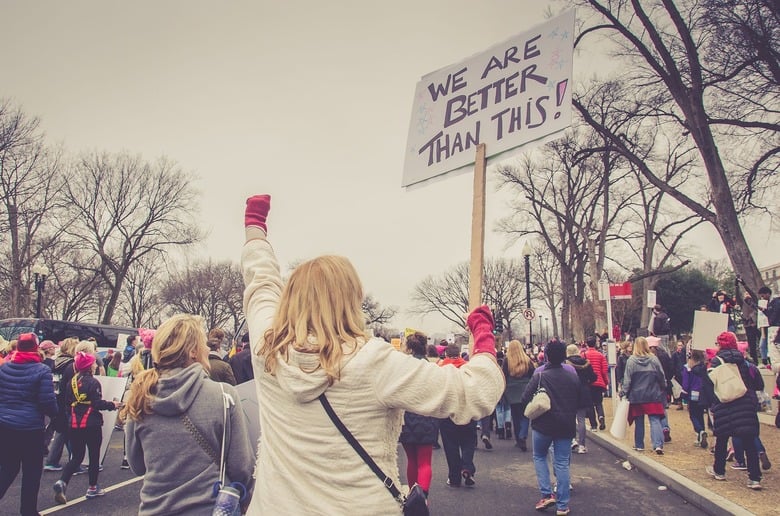
The dysfunctional critical infrastructure of our islands
It is all about Democracy Rules. It is all about acquiring an “understanding” of politics enabling an individual to become a better citizen. Citizens who intelligently can elect parliamentary representatives who are knowledgeable, fit, and capable. Citizens who can evaluate and be proactive dealing with this present crisis.
The onus of such mission lies squarely with democracy’s critical infrastructure: the parties and the professional media, including public broadcasting.
The heart of the matter is the Courts perceived ineffectiveness in expressing judgement on the wrong allegedly involving government. This while misdeeds by an ordinary citizen are settled relatively swiftly.
The Courts are the ultimate institution to set things right; to enforce justice, to annul illicit processes. Yet Courts depend on the probity and integrity of other institutions. It depends also on the trust and effort of government and the citizens.
The prognosis for a return to normality through Courts is circumscribed by a multiplicity of government’s premeditated defence agendas. The lack of resources, fabricated delays in delivery of judgements and inquiries, the impunity concerning criminal action, the takeover of state apparatus, the cover-up and erroneous indictment charges often resorted to by state prosecutors, the legitimate delaying mechanisms by defence and state lawyers, and government’s reticence enacting legislation that ensures justice, equal individual rights, law, and freedom prevail.
This litany of “mismanagement of things” impedes the mission of our Courts and instils a deep sense of helplessness among citizens.
In these conditions Courts will not necessarily save us.
The problems of a country are the responsibility of both government and opposition parties. It is also the responsibility of us citizens. Democracy, after all, is not about trust (be it in individuals or institutions) it’s about effort. (Edward Snowden)
Malta’s critical infrastructure has been contaminated by our same dysfunctional democracy.
Democracy requires such critical infrastructure; it facilitates the reaching of people and being reached by them. Yet citizens continue to distance themselves from politics. Absenteeism has exploded to around 25% in a March 2023 survey.
This critique emanates from government stretching neoliberalist and today’s populist governance to extremes. It transformed itself into a left-wing populist oligarchy. It disguises its misdeeds by alienating voters with whatever it takes to deter any threat to hold on to power. In the meantime, it claims to have the sole representation of the “real” people – leading to polarisation as a political vehicle. It considers opposition irrelevant and calls its adversaries as the “enemy of the people”.
Against such odds, life for parties and media embarking on remedial measures is a herculean task. Our mediating institutions need to get to grasp with a form of politics that is not restricted to lawsuits and parliamentary opposition. Day-to-day issues are relevant but not the priority. People need to be convinced, motivated and mobilised. Democracy is not just about trust; it is about effort.
To resolve this crisis requires nothing less than a riduzione verso il principio, a “return to first principles” (Machiavelli). We need to return to the origin of politics.
In this general democracy conflagration, parties today appear to be seen as having transformed themselves into vote-catching committees. But this quest to return to normality requires credible leadership. Most politicians lack an acquaintance with what politics is all about. Their representation and advocacy are not what citizens long for. Even if democracy stands for the power of the people, citizens do long to be led.
Politicians indeed do try to reach out to people. But the absence of political density is conspicuous. Permeating this apparent inertia is hard. Education, access to information and the notion of self-sustainability significantly reduced citizens’ dependence on parties.
Civil society and specific interest-groups, important as these are, cannot replace the parties. Their mission is to put pressure on parties, protest and apply limited disobedience. But it is only parties that can be the vehicle for the attainment of their objectives.
On paper Malta can be considered as a blossoming bud in an abstract interpretation of democracy. This notwithstanding, politicians themselves, political scholars and the public in general are more than convinced that nothing could be more deceptive. Still, we live a lie and refuse to live in truth.
Labour tagged academics who, while admitting that this country has reached a deplorable and disgusting crisis, contend that this government is a perfect reflection of us citizens.
The imposed dysfunctionality of critical infrastructure has led to citizens reigniting the Italian concept of post-World War II “qualunquismo”. Even if this can result from the failures of liberal democracy itself, the current apparent lack of civil duty and the resignation of citizens living a lie raises the question: “How can democracy be perfectly realized?”
If democracy is about the exercising of freedom in general, policing of rules and no one has a licence to undermine the standing of fellow citizens, politics still does not mean perpetual policing of limits. If democracy is not just about hope but about a citizen’s effort, democratic action may involve breaking and reshaping the rules. What congressman John Lewis refers to “Good trouble, necessary trouble”.
Times call for a distinctly democratic form of disobedience. Malta’s recent chronicle of events amply justifies that the political process has broken down. That a form of disobedience is permissible is a sign of hope.
These are the paths citizens could choose to follow, led by the critical infrastructure of our democracy. The paths are there; the rest is up to us.